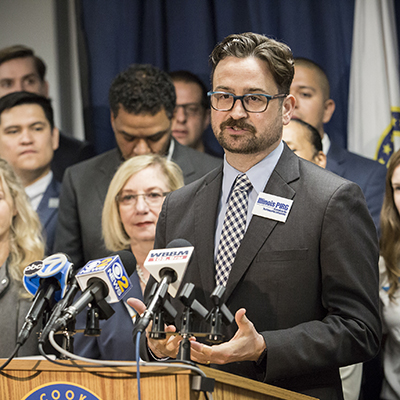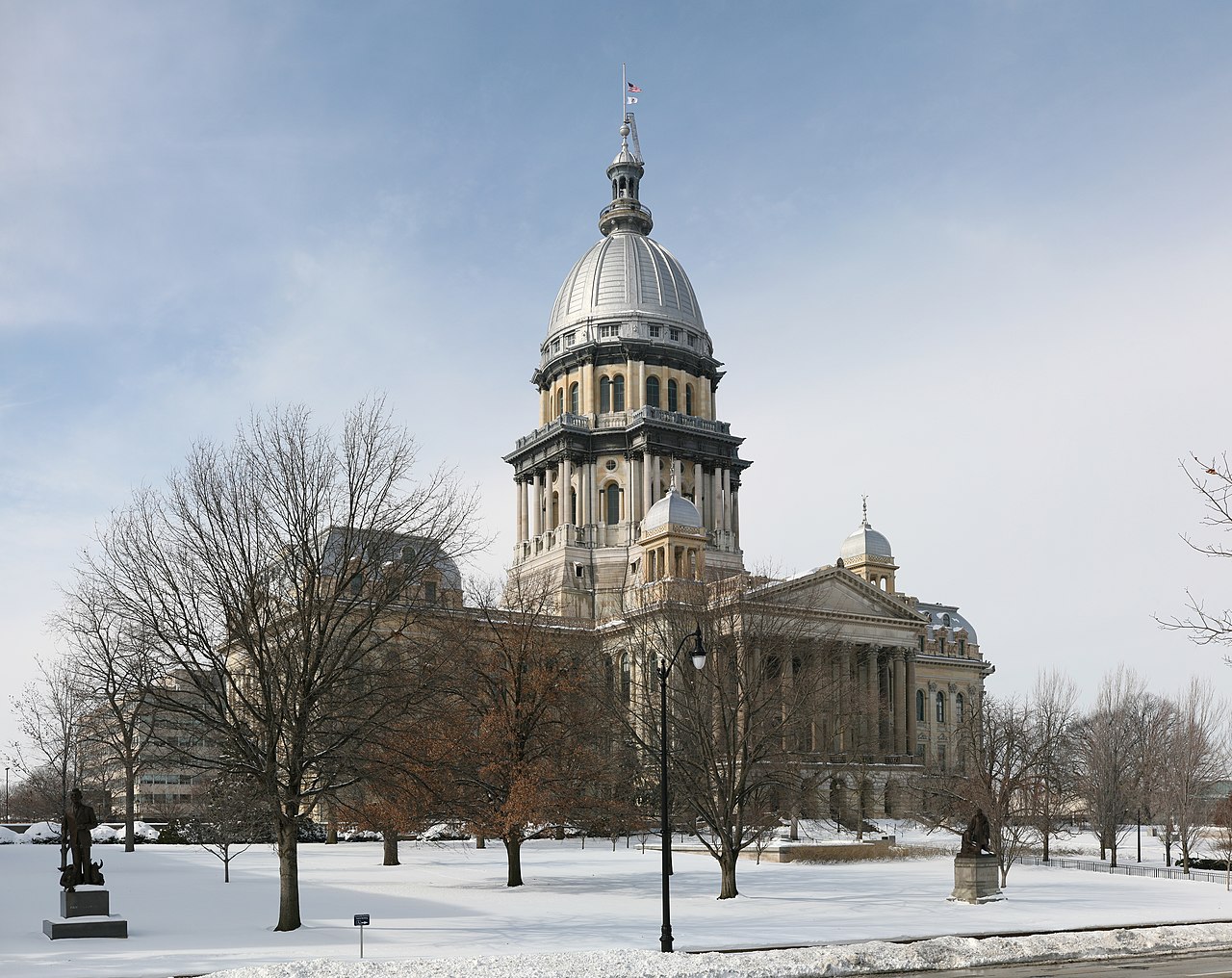
Testimony in Opposition to HB5589 before the Energy & Environment Committee
Illinois’ moratorium on new nuclear power plant construction is sound policy that should be maintained. The United States has no long-term plan for the safe storage of nuclear waste, nuclear power is cost-prohibitive, and Illinois can better meet its long-term energy needs through 100% renewable energy.
Chairperson Williams, Vice Chairperson Didech, Spokesperson Welter, honorable members of the committee: thank you for the opportunity to testify today in opposition to House Bill 5589.
My name is Abraham Scarr and I am the Director of Illinois PIRG. Illinois PIRG is a statewide, citizen funded, non-partisan public interest advocacy organization that speaks out for a healthier, safer world in which we’re freer to pursue our own individual well-being and the common good.
Illinois’ moratorium on new nuclear power plant construction is sound policy that should be maintained. The United States has no long-term plan for the safe storage of nuclear waste, nuclear power is cost-prohibitive, and Illinois can better meet its long-term energy needs through 100% renewable energy.
Safety
Illinois law currently places a moratorium on the construction of new nuclear power plants until the federal government “has identified and approved a demonstrable technology or means for the disposal of high level nuclear waste.” HB5589 would remove this common sense policy. With more nuclear generating capacity than any other state in the country, and no viable plan for federal nuclear waste storage, Illinois could become the largest nuclear waste storage site in the country. We should not make this problem worse.
Cost
Nuclear power is expensive and its high cost has negatively impacted Illinois for decades.
Of 75 nuclear reactors completed between 1966 and 1986, the average reactor cost more than triple its original construction budget. Reactors under construction today follow this pattern: in Georgia, two new units at the Vogtle nuclear plant were originally scheduled to be operational by 2016-17 at a cost of $14 billion. Current estimates are to be operational in 2023 at a cost of over $28 billion.
In the 1980s, ComEd’s nuclear power plant construction was beset by delays and skyrocketing costs — 13 times what ComEd had spent on plants completed in the 1970s. Due to the cost overruns, ComEd customers paid the highest electrical rates in the country. In order to deal with financial pressure from its nuclear plant construction, ComEd, according to its own assessment, embarked on “one of the most extensive austerity programs since the great [sic] Depression,” which “particularly hurt the [transmission and distribution] side of the company.” This led to reliability problems that were only adequately addressed after ComEd used the promise of fixing reliability problems as part of its campaign to pass the formula rate law at the outset of its bribery scheme.
After paying exorbitant rates for the nuclear power plants when ComEd was vertically integrated in the 1980s and 1990s, Illinois consumers once again paid high power prices after restructuring created a competitive market for power generation. The original market design for competitive power, pushed by then-ComEd parent company Exelon, resulted in spiking power prices and profits for Exelon Generation. In more recent years, Illinois consumers have been put on the hook to subsidize these plants once again, to the tune of $3 billion.
There is no reason to continue throwing good money after bad. Illinois should prioritize renewable energy solutions – technologies that deliver safe, reliable and secure electricity supplies at a reasonable cost.
100% renewable future
While nuclear power continues to be expensive and noncompetitive in power markets, the costs of renewable energy sources have declined over time as they have scaled up. Every dollar Illinois wastes on failed energy policies of the past is a dollar it cannot spend on building the 100% renewable energy future.
Thank you for the opportunity to submit written testimony. I will be happy to answer any questions the committee may have.
Topics
Authors
Abe Scarr
State Director, Illinois PIRG; Energy and Utilities Program Director, PIRG
Abe Scarr is the director of Illinois PIRG and is the PIRG Energy and Utilities Program Director. He is a lead advocate in the Illinois Capitol and in the media for stronger consumer protections, utility accountability, and good government. In 2017, Abe led a coalition to pass legislation to implement automatic voter registration in Illinois, winning unanimous support in the Illinois General Assembly for the bill. He has co-authored multiple in-depth reports on Illinois utility policy and leads coalition campaigns to reform the Peoples Gas pipe replacement program. As PIRG's Energy and Utilities Program Director, Abe supports PIRG energy and utility campaigns across the country and leads the national Gas Stoves coalition. He also serves as a board member for the Consumer Federation of America. Abe lives in Chicago, where he enjoys biking, cooking and tending his garden.
Find Out More

Why we oppose lifting the nuclear construction moratorium in Illinois

Testimony before the House Public Utilities Committee in opposition to House Bill 1472

A look back at what our unique network accomplished in 2023

